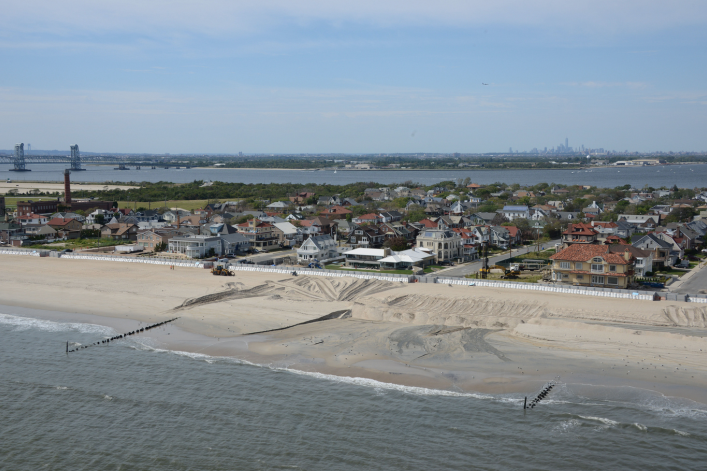Own property near the waterfront? Your flood insurance just got more expensive

As has been expected for quite some time, federal flood insurance rates went up at the beginning of the month, and property owners in waterfront neighborhoods can expect to see policy premium increases of as much as 25 percent in the next billing cycle, the New York Times reports.
Unfortunately, this will have a disproportionately negative effect on low-income or moderate-income owners. One Midland Beach resident told DNAinfo, "I just don't have the money. I'm quite sure I'm not unique in that." The same goes not just for monthly insurance bills, but for longer term property values: "I believe [the new rates] will have an adverse impact on lower price housing than upper because the portion of the monthly payment will likely be larger," Miller Samuel data guru and appraiser Jonathan Miller tells us. "The impact to affordability will be more severe which translates to lower prices and less upside in a rising market. "
And while the National Flood Insurance Program will charge higher premiums for secondary homes as well as a $250 surcharge, in many cases, the onus will be on owners to provide proof that their home is actually a primary residence, which entitles them to lower rates. (This can be done with documents like a driver's license or voter registration.) "People are getting rate renewal notifications that just have the $250 addition," a policy manager for the Center for New York City neighborhoods told DNAinfo. "They don't even know there’s a surcharge there."
So what's a waterfront dweller to do? For starters, check your next insurance bill closely for potential overcharges. You can also head over to FloodHelpNY for help determining both your rate and your flood zone, and look into the policyholder resources at FloodSmart.gov.
Rising sea levels are also going to mean rising flood insurance costs for the foreseeable future, so while you should be able to dodge unnecessary overcharges, you'll still have to brace for your monthly bills to go way up.
Related:
Ground floor apartments are now trendy—but are they about to go extinct?
Buy a Sandy-ravaged property for as little as $27,950—if you're willing to build
10 questions to ask before buying co-op or condo insurance (sponsored)
How to grill on your terrace or in your backyard in NYC—legally























